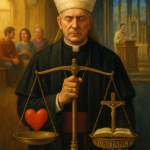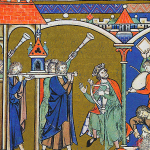Last updated on: August 29, 2016 at 5:10 pm
By
CNA Daily News
Paris, France, Aug 29, 2016 / 11:10 am (CNA).- The lifting of a controversial burkini ban in one beach town along the French Riviera may signal an end to similar policies in the country - but it has not put an end to cultural tensions surrounding it. The Council of State, France’s highest administrative court, ruled that the burkini ban in the town of Villeneuve-Loubet “seriously and clearly illegally breached fundamental freedoms,” including freedom of belief. A burkini (also spelled burqini) is a type of full-body swimwear that some Muslim women wear in order to cover their arms, legs and hair. Citing concerns over terrorism and overt displays of religious affiliation, several coastal towns in France have issued bans against such swimwear in the past few weeks. The policies cite the French Republic’s concept of laïcité (roughly, secularism), saying that women need to dress for the beach in a way that respects “good morals and secularism.” Tensions in the country have been high after French civilians have been the target of several attacks perpetrated by extremists with the Islamic State. The most recent attacks happened on Bastille Day on July 14, when a terrorist killed 84 people while plowing through crowds with a truck, and again less than two weeks later, when a French Catholic priest was murdered while saying Mass. Grégor Puppinck, director of the European Centre for Law and Justice in Strasbourg, France, told CNA that while he was glad that the burkini issue may be over, it is not the end of the cultural conflicts in the country. “I’m quite pleased that it is being lifted...in terms of individual freedoms it is quite important,” he said. But the burkini ban is just one example of the conflict of cultures that is now out in the open in France, as it grapples with a greater influx of immigrants who do not share traditional French values, Puppinck added. “We now are in a critical time of our history, and we are realizing that Muslims are Muslims. We believed for decades that the immigrants could become secular, and could adhere to secular values. And now we are witnessing in a large extent the failure of this idea, and now we see that this whole portion of the French population does not want to share these values of our modern, contemporary culture,” he said. The burkini bans have sparked outcry and debate worldwide, with some people posting photos on social media showing Muslim women being fined by police and removing their clothing in order to comply with the bans. Many people on Twitter criticized the bukini ban by posting photos of Catholic religious sisters in full habits at the beach. Dear Nuns in France, Can you please help out our Muslim Sisters & visit beaches in your habits!#BurkiniBan pic.twitter.com/nfYbj1r5Zr — Nickie (@MuskokaMoneybag) August 24, 2016 I wonder if France would make these ladies take their clothes off too. #BurkiniBan pic.twitter.com/PP6EIWlaoZ — Irene Adler (@The_Whip_Hand) August 24, 2016 Bishop Nunzio Galantino, the secretary-general of the Italian bishops’ conference, also criticized the burkini ban, saying that he found it “ironic” that officials are concerned about women who are overdressed while going out for a swim. “It’s hard to imagine that a woman [in a burkini] who enters the water is there to carry out an attack,” Bishop Galantino said in an interview with Corriere della Sera. “I can only think of our nuns, and I think of our peasant grandmothers who still wear head coverings,” he said. Religious sisters in full habit, including a long skirt, long sleeves and a veil, are a common sight on the beaches of Italy. Italy’s interior minister, Angelino Alfano, told the Corriere della Sera daily newspaper that he thinks the burkini ban could have the opposite of its intended effect. “The interior minister's responsibility is to ensure security and to choose the severity of responses which, however, must never become provocations that could potentially attract attacks,” Alfano said. The recent overturning of the ban in Villeneuve-Loubet could signal the eventual end to the policy across the country. According to the New York Times, Interior Minister Bernard Cazeneuve suggested in a statement that it was time for the local officials to back down, saying it was now “up to each and every one to responsibly seek to ease tensions, which is the only way to avoid disturbances to public order and to bolster coexistence.” But later on Friday, French Prime Minister Manuel Valls said in a statement on Facebook that the ruling “doesn’t exhaust the debate that has opened up in our society on the question of the burkini.” Puppinck told CNA that Christians should be cautious in considering the secular government to be an ally. “And we should remember that 100 years ago, the same Republican values were used against the Catholics,” Puppinck said. At that time, the Third Republic officially established state secularism in France, causing a subsequent wave of anti-Catholicism, which included the end of government funding for religious schools, mandatory civil marriage and the removal of chaplains from the army. “So we should remember that the French Republic has always been anti-religious, so Christians should not imagine that the Republic is in some extent their ally, but keep faithful to our own hope and religion and values and faith.” Read more
















